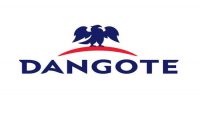Therecently released April version of the Nigeria Purchasing Managers’ Index (PMI) has expectedly revealed a decline in the private sector.
According to the report, the Nigeria PMI headline sank to 37.1 index points in April 2020 compared to 53.8 index points recorded in March. New orders, output and employment witnessed sharp falls as prices rise amid supply chain disruption.
The Nigeria PMI report, published by Stanbic IBTC Bank PLC, reflects economic indicators gotten from monthly surveys of private sector companies and it is targeted at providing information about current business conditions to various stakeholders. Readings above 50.0 indicate an improvement in business conditions while readings below 50.0 show a deterioration.
The advent of coronavirus pandemic (COVID-19) and the lockdown imposed to curtail its spread have led to a severe deterioration in business conditions across the Nigerian private sector during April. Both output and new orders decreased at rates unprecedented in more than six years, the report revealed.
The report also showed that firms scaled back employment as most companies kept their staffing levels unchanged at the start of the second quarter. Concerning purchasing activity, difficulties in securing materials led to a sharp rise in purchase costs, and this was passed on in the form of higher output prices. As companies continued to increase their selling prices at a marked pace in April as a result of the higher purchase costs, the rate of inflation rose to a new high.
The introduction of the lockdown prevented many firms from completing outstanding orders, thereby making backlogs of work to increase for the first time in three months.
Specifically, the Nigeria PMI survey report for April is a weighted average of the following five indices: New Orders (30%), Output (25%), Employment (20%), Suppliers’ Delivery Times (15%) and Stocks of Purchases (10%), the report stated.
Despite many companies experiencing a drop in confidence due to a severe decline in business activities across the country when compared to the index of the previous six months, there is optimism that businesses will begin to bounce back steadily once the pandemic eases.




